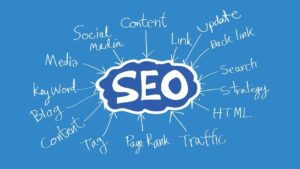PPC and So Much More

PPC
Industry-renowned pay-per-click (PPC) specialist Melissa Mackey recently wrote a great 2 part series about the pros and cons of running PPC campaigns in-house or through an agency (part 1 and part 2). She makes valid points on both sides and gives those interested in hiring a PPC specialist much to consider about PPC management. I’d like to add to Melissa’s sentiments, by suggesting that whether PPC managers work for themselves or an agency, they need to excel at more than just paid search.
PPC isn’t just about researching the right keywords to bid on and writing effective, conversion-oriented text ads. It’s also about creating the right landing page experience for visitors and being able to accurately track the success of campaigns in order to meet the goals. The more control you have over PPC campaigns the better chance you have to succeed.
Here are 3 skills that PPC managers and agencies should have:
An Understanding of User Experience
Creating effective PPC landing pages will help to increase conversion rates, but you have to know how to develop these pages. A good landing page takes times to create and you must be able to answer yes to these questions:
- 1) Does the page continue the messaging in the ad?
- 2) Does the page clearly tell the visitor what to do?
- 3) Is the page set up so the visitor isn’t distracted from the conversion goal?
A landing page template should be designed to make sure messaging, direction and conversion are effective. You can simply sketch out a mockup on paper or ask an information architect to design it for you. Either way, the final product is a landing page template that will have to be developed (coded into the site). Depending on how many keywords and conversion goals are in your campaign you may end up creating several different pages utilizing this template.
Especially for ecommerce sites, it’s extremely important to make the navigation of the site and checkout process as simple as possible. In my experience, it’s a lot easier to do PPC for sites that information architects and developers are constantly working to refine because:
- Inventory is always up to date
- Product images are stunning
- The checkout process is always under a microscope
- If new product categories need to be created they will be
Of course there are many more items that receive attention, but when people are always working to make sites better PPC only benefits.
Coding Knowledge
PPC doesn’t require a degree in computer science, but basic to intermediate knowledge of website coding is necessary. At the very least, conversion codes and analytics codes will need to be placed on the site. Even if you aren’t putting these codes on yourself, you need to know where they should go and be able to explain why.
Once you get into landing page testing, especially if you are using Google’s Website Optimizer, you’ll need to know which sections of the page to test; which requires updates to the source code. Additionally, coding landing pages requires more of an intermediate knowledge, especially if forms and payment systems are being used. The bottom line is that PPC is far less effective if code edits can’t be made.
Extensive Knowledge of Analytics
Simply put, if a PPC manager is not using an analytics program to help track the success of the campaign there is a problem. Analytics needs to be used in order to track what occurs post ad click. Visitor retention rates need to be analyzed and goals should be setup that align with the conversions rules in PPC campaigns. My general rule of thumb is that both your PPC and analytics programs should be able to tell you the conversion that was hit, the converting keyword, and the converting ad. PPC managers need to understand analytics in order to optimize campaigns.
Conclusion
A great PPC manager needs to have the influence to craft and alter more than just the PPC campaign. Knowledge of the entire process from landing page design to coding and then to tracking the campaign is imperative.






